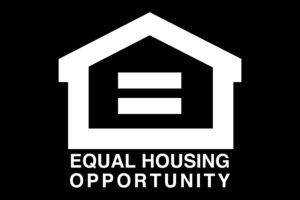Table of Contents
Owning a home is a dream for many, but sometimes unforeseen circumstances can make it challenging to meet mortgage obligations. When a borrower fails to make timely mortgage payments as agreed, it can lead to a situation called mortgage default. Understanding the consequences of default and exploring potential solutions is crucial to protect your home and financial well-being. In this article, we will delve into the topic of mortgage default, its implications, and possible avenues for resolution.
What is Mortgage Default?
Mortgage default occurs when a borrower fails to make mortgage payments as per the agreed terms and schedule. It typically happens due to financial hardship, such as a job loss, medical emergency, or unexpected expenses. When a borrower defaults on their mortgage, it triggers a series of consequences that can have a significant impact on both the borrower and the lender.
Consequences of Mortgage Default
Credit Score Impact: Mortgage default has a severe negative impact on your credit score. A default can stay on your credit report for several years, making it difficult to secure future loans and credit.
Foreclosure Risk: Defaulting on your mortgage increases the risk of foreclosure. Foreclosure is a legal process through which the lender takes possession of the property due to non-payment. Losing your home is a significant consequence of default and can have long-lasting effects on your financial stability.
Financial Loss: Defaulting on a mortgage can lead to financial loss for the borrower. In addition to the potential foreclosure, the borrower may be responsible for paying the outstanding mortgage balance, legal fees, and any additional costs associated with the foreclosure process.
Limited Housing Options: A mortgage default can make it challenging to qualify for future mortgages or rental agreements. Lenders and landlords typically review credit history and may be reluctant to offer financing or housing to individuals with a history of default.
Solutions for Mortgage Default
While defaulting on a mortgage can be overwhelming, there are several potential solutions to consider. It’s important to take immediate action to address the situation and explore the following options:
Communication with Lender: Contact your lender as soon as you anticipate or experience difficulty in making mortgage payments. Explain your situation and explore potential alternatives or payment arrangements. Some lenders offer forbearance or loan modification programs to help borrowers during financial hardships.
Loan Refinancing: Refinancing your mortgage may be an option if you have built equity in your home and your credit is still in good standing. Refinancing allows you to replace your existing mortgage with a new loan, potentially offering lower interest rates or revised repayment terms.
Loan Workout or Modification: In some cases, lenders may be willing to modify the terms of your loan to make it more affordable. Loan workouts or modifications can involve adjusting the interest rate, extending the loan term, or reducing the monthly payments.
Sell the Property: If maintaining the mortgage becomes unsustainable, selling the property can help avoid foreclosure and minimize financial losses. Depending on the housing market and the outstanding loan balance, selling the property may allow you to pay off the mortgage and potentially retain some equity.
Government Assistance Programs: Investigate government programs designed to assist homeowners facing financial difficulties. For example, the Home Affordable Modification Program (HAMP) provides eligible borrowers with the opportunity to modify their mortgage loans to make them more affordable.
Seek Professional Advice: It is highly recommended to consult with a housing counselor or an experienced attorney specializing in foreclosure prevention. These professionals can provide guidance, negotiate with lenders on your behalf, and help you navigate the complexities of mortgage default.
Preventing Mortgage Default
Prevention is always better than dealing with the consequences of default. Here are some proactive steps you can take to prevent mortgage default:
Build an Emergency Fund: Creating an emergency fund can provide a financial safety net in case of unexpected events. Having savings to cover several months’ worth of mortgage payments can help you stay on track even during challenging times.
Budgeting and Financial Planning: Develop a comprehensive budget and financial plan to manage your expenses effectively. Prioritize your mortgage payments and ensure they fit within your monthly budget. Cut down on unnecessary expenses and focus on building a stable financial foundation.
Explore Mortgage Insurance: Mortgage insurance, such as private mortgage insurance (PMI) or mortgage protection insurance (MPI), can offer additional protection in case of financial hardship. These insurances can help cover mortgage payments if you become unable to do so.
Stay Informed: Stay up to date with changes in your financial situation and the housing market. Be aware of any modifications to your mortgage terms and conditions and understand your rights and options as a borrower.
Continued Communication: Maintain open lines of communication with your lender throughout the life of your mortgage. If you anticipate potential financial difficulties, inform your lender as soon as possible. Prompt communication can help in exploring alternative solutions and avoiding default.
Remember, the key to preventing mortgage default is proactive financial management, open communication with your lender, and seeking professional advice when needed. By taking preventive measures and exploring potential solutions, you can mitigate the risk of default and protect your home and financial well-being.
The Bottom Line
Mortgage default can have severe consequences on your credit score, homeownership, and overall financial stability. Understanding the implications of default and exploring potential solutions is crucial for borrowers facing financial hardship.
By maintaining open communication with your lender, exploring options such as loan modifications or refinancing, and seeking professional advice, you can navigate through the challenges of mortgage default. Additionally, proactive financial management, including budgeting, building an emergency fund, and staying informed, can help prevent default in the first place.
Remember, it’s essential to take immediate action if you anticipate or experience difficulty in making mortgage payments. By addressing the situation promptly and exploring the available avenues for resolution, you can regain control of your financial situation and work towards long-term stability.
FAQs (Frequently Asked Questions)
1. How long does a mortgage default stay on your credit report?
A mortgage default typically stays on your credit report for seven years. However, its impact on your credit score gradually diminishes over time as you demonstrate positive credit behavior.
2. Can you recover from a mortgage default?
Yes, it is possible to recover from a mortgage default. By addressing the situation, working with your lender, and implementing strategies to improve your financial stability, you can rebuild your credit and regain control of your homeownership journey.
3. Will mortgage default prevent me from getting another mortgage in the future?
While a mortgage default can make it challenging to obtain future mortgages, it does not automatically disqualify you. Lenders will consider various factors, including your credit history, income stability, and financial management since the default.
4. Can I negotiate with my lender after defaulting on my mortgage?
Yes, it is possible to negotiate with your lender even after defaulting on your mortgage. Open communication and seeking professional advice can help you explore options such as loan modifications or repayment plans.
5. Can I still keep my home if I default on my mortgage?The possibility of keeping your home after defaulting on your mortgage depends on various factors, including your lender’s policies, your financial situation, and the foreclosure process in your jurisdiction. Seeking professional advice is crucial to understand the specific options available to you and increase the chances of retaining your home.



